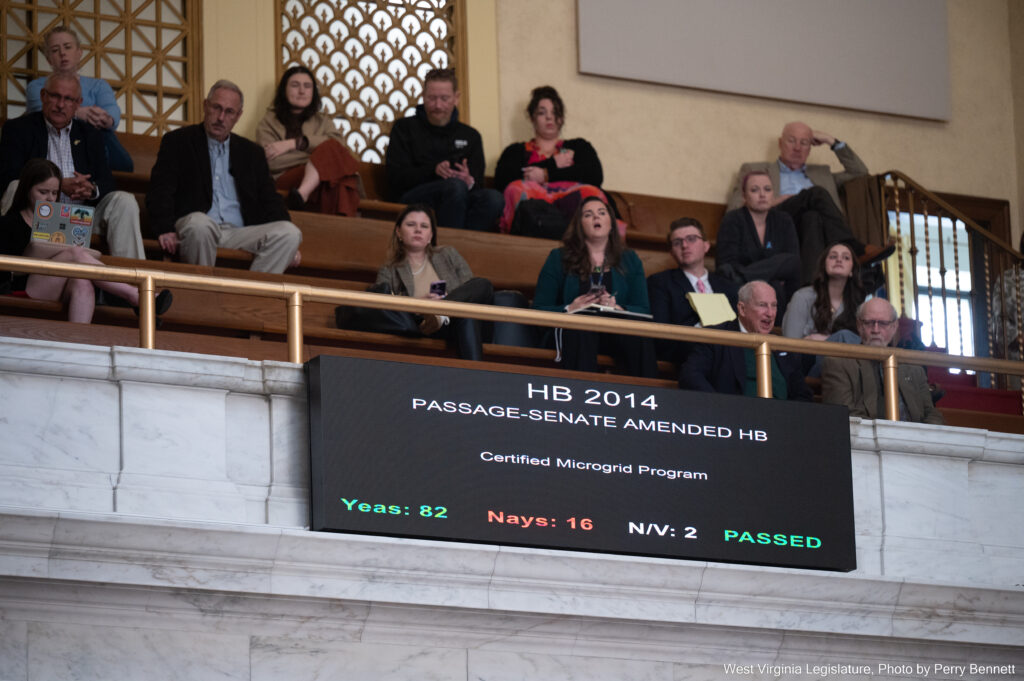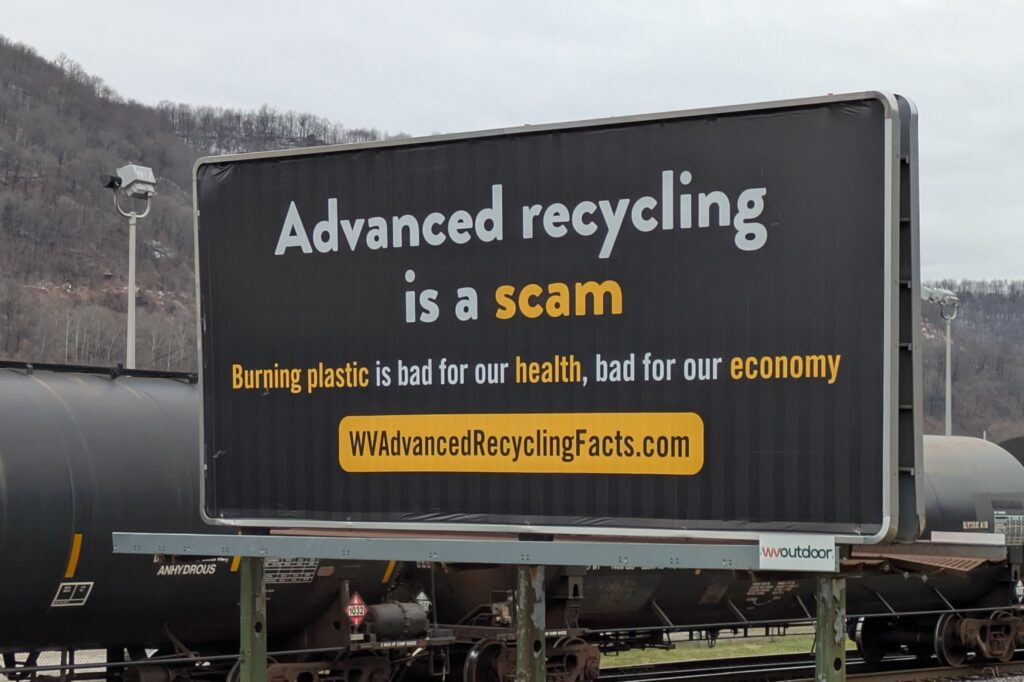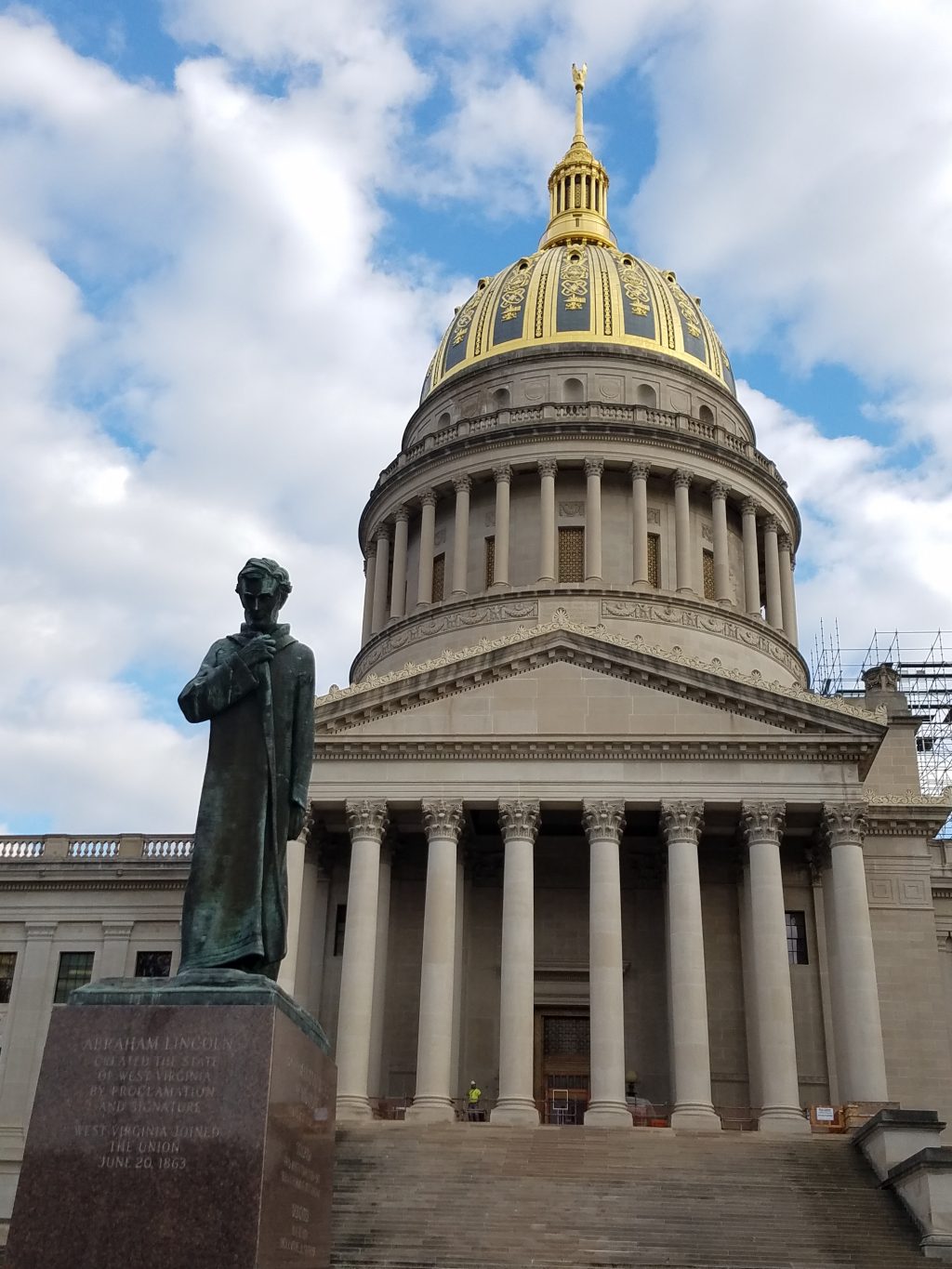- Like
- Digg
- Del
- Tumblr
- VKontakte
- Buffer
- Love This
- Odnoklassniki
- Meneame
- Blogger
- Amazon
- Yahoo Mail
- Gmail
- AOL
- Newsvine
- HackerNews
- Evernote
- MySpace
- Mail.ru
- Viadeo
- Line
- Comments
- Yummly
- SMS
- Viber
- Telegram
- Subscribe
- Skype
- Facebook Messenger
- Kakao
- LiveJournal
- Yammer
- Edgar
- Fintel
- Mix
- Instapaper
- Copy Link
WV’s Legislature Failed Us. Here’s What They Did and Didn’t Do.
By Gary Zuckett, Co-Executive Director
Well, the first legislative session of the Morrisey administration is finally over. We’ve taken a week or so to let the dust settle, and now we’re ready to take a look at what the heck happened. Most reports agree that this session’s goals were almost totally misaligned with the dire needs of our state’s people and infrastructure, calling it the worst session ever.
The governor egged on the legislature with his wish list of mismatched priorities, like the white-hooded anti-DEI bill, SB 474, and one to roll out the red carpet for data centers and their dirty micro-grids. HB 2014 would allow data centers to bypass local control of siting these monsters and then have the state steal the lion’s share of counties’ tax revenue to trigger another income tax cut primarily benefiting the already wealthy.
Both of these mistakes made it through the legislative gauntlet, but the anti-DEI bill only crossed the finish line because the Senate threw its procedural rules in the trash can. If the bill is signed into law, the ACLU of WV will be litigating this latter issue. We wish them success in making the Senate play by the rules!
The legislature managed to do the bare minimum required by our state constitution: pass a budget so the government can function next fiscal year. But even that budget is seriously flawed. It fails to fund critical services West Virginians rely on—like mental health support, youth programs, and public health initiatives. And to make matters worse, Governor Morrisey used his line-item veto power to slash even more, targeting support for vulnerable children in the middle of a foster care crisis. Beyond the budget, lawmakers failed to deliver meaningful progress on the kitchen-table issues that matter most to everyday West Virginians.
Most Pleased By What Died
We’re most pleased by what didn’t pass— several bills that would have made life worse for average citizens. In the running for the worst was the Medicaid ‘trigger’ bill. HB 3518 would have thrown 166,000 West Virginians off of their health insurance if the federal matching funding was reduced. This heartless proposal was opposed by medical providers, hospitals, and citizens’ groups and stopped by a huge unified outcry from us all.
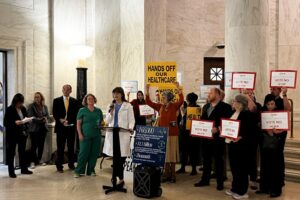
Another that died was the ‘tank bill,’ an almost every session attempt by the polluter lobby to yet again exempt even more aboveground storage tanks from the landmark legislation passed to protect our public drinking water supplies. Many of us remember the water crisis due to the 2014 Freedom Industries chemical leak into the Elk River less than a mile upstream from WV American Water’s Charleston intake. This year’s bill, SB 592, was especially twisted as it tried to exempt tanks storing MCHM, the coal-cleaning chemical that poisoned our water during the spill!
We were also pleased to see the demise of SB 763, which would have kneecapped power purchase agreements (PPAs) for homeowners and small businesses. We never got the word which monied interest was seeking to build barriers for regular folks to have access to solar from a PPA, but we can make some educated guesses.
Wish List Dead, Too
Speaking of solar, for the third year in a row, our lawmakers have ignored the pleas of thousands of renters and homeowners lacking the space (or funds) to install solar panels and who want to be able to sign up to buy carbon-free power from a local community solar installation. They want Energy Freedom, but state rules currently block community solar. Community solar is a much more affordable option than utility power, which increases annually and always outpaces inflation by wide margins. SB 34 and HB 2419 were introduced but stalled in committee and never gained traction.
Wish They Were Dead: Anti-DEI and Anti-LGBTQ+ Bills
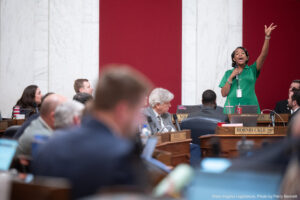
We were inspired by the speeches of House members who supported diversity, equity, and inclusion — speaking truth to the fallacy and racism of SB 474. The Anti-DEI bill passed in the last hours of the session, but If the Senate had actually followed its own rules and not cut the opponents’ microphones off, this pro-discrimination bill would likely have run out of time. SB 474 is part of a disturbing pattern— including SB 154 and SB 299—of attacking vulnerable groups instead of solving real problems. SB 154 will force teachers to out their transgender students — even if a teacher has reason to believe the student could face mistreatment or neglect because of their identity. SB 299 cuts off all gender-affirming care for trans teenagers across the state, which multiple healthcare providers said could seriously increase the risk of suicide.
See our action alert calling on Governor Morrisey to veto these harmful bills.
Overall, it seems that the Republican supermajority was focused more on checking items off the MAGA agenda than addressing the many real problems affecting the state. Lawmakers ignored child and foster care, flood relief and infrastructure (including clean drinking water for the coalfields), PEIA, Medicaid, and many critical issues.
Instead, they endlessly debated how to more completely insert themselves into the medical decisions of trans youth, the fictitious ‘woke’ boogeyman, and how to funnel more public tax dollars into private schools. They also pushed to take away local government control—blocking efforts to support and care for the unhoused, and preempting siting and environmental ordinances that might affect the state development office’s grand plan to turn WV into one big data center powered by coal and gas.
But there is hope! The 2026 election is right around the corner, and the January deadline to become a candidate in the primaries is just nine months away. If you don’t like what your local delegate supported during the session, the entire House and half of the State Senate are up for re-election next year. This is a real opportunity to either run for office or support a candidate who shares your values!
In the last midterm (non-presidential) election in 2022, only 43% of registered voters made it to the polls. Furthermore, 43 races that year’s primary were decided by less than 10 votes!
But wait, there’s more! In 2024, 43 House races on the general election ballot gave voters just one option, with the other party failing to field a candidate. Let’s go for it!
Happy Earth Day and 50 Years!
Earth Day has come and gone—but the fight for our planet continues daily. As we work to stop polluters from flooding our air with toxins and driving climate change past the breaking point, we need your support.
This is an all-hands-on-deck moment for West Virginia, our country, and the world. If you can, send a little green from your wallet to help fuel this work. Every dollar goes toward building a cleaner, healthier, more sustainable future.
Join us May 17 as we celebrate more than 50 years of environmental advocacy. Thanks for being in this fight with us.

